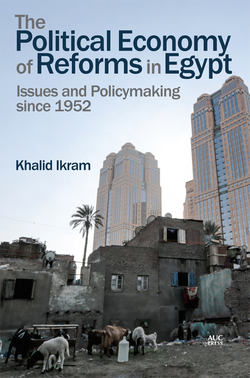Читать книгу The Political Economy of Reforms in Egypt - Khalid Ikram - Страница 8
На сайте Литреса книга снята с продажи.
ОглавлениеPreface
This book describes the interaction between politics and economics that went into dealing with some of the most important issues of economic policymaking in Egypt since 1952. A certain degree of overlap with my earlier book—The Egyptian Economy: 1952–2000: Performance, Policies and Issues (London: Routledge, 2006)—is inevitable. The major distinction between the two is that the earlier book contained a good deal of technical analysis and was lighter on the interaction with politics. The present work tries to rectify the imbalance. However, as before, the focus remains on the durable, structural issues that policymakers confronted, rather than on day-to-day problems.
I have been engaged with the Egyptian economy since 1975 as senior economist in the World Bank responsible for Egypt, as director of the World Bank’s Egypt department, and as a consultant for international organizations and private think tanks. During these years of association, I have been fortunate to have had the opportunity to access many diverse sources of information and advice. Thus, in addition to published material, the present book draws on unpublished studies, background papers, memoranda, and back-to-office reports of the World Bank, the International Monetary Fund, and other international and national organizations.
It has also benefited from discussions with several present and past Egyptian policymakers, politicians of every hue, bureaucrats, scholars and students, members of Egyptian and foreign think tanks and civil society, bankers, lawyers, journalists, diplomats from countries providing assistance to Egypt, and of course with former colleagues in the World Bank and the International Monetary Fund. I am grateful for the candor and the detail with which they discussed their views, and for their unvarnished assessments of political and economic issues confronting Egypt and the country’s policy responses to them. Many of the insights are directly quoted in the text and have been referenced. However, this book is not a journalistic exposé and confidences have been respected; where identification might breach confidentiality, or the source requested anonymity, comments have been paraphrased without attribution.
The Egyptian economy faces a number of difficulties. The proportion of young people in the population is expanding rapidly and their expectations for the future are growing. These developments are taking place in an environment in which world economic growth has slowed, in which the benefits of economic integration and free trade are being called into question, and in a region in which threats of terrorism have added to political uncertainty. History has shown that on many crucial issues, economics and politics are inextricably intertwined. Overcoming the economic difficulties will call on all the skill and the wisdom that Egypt’s policymakers and citizens can muster, together with learning from the experience of successes and failures in the past. I hope this book can help in the task.
